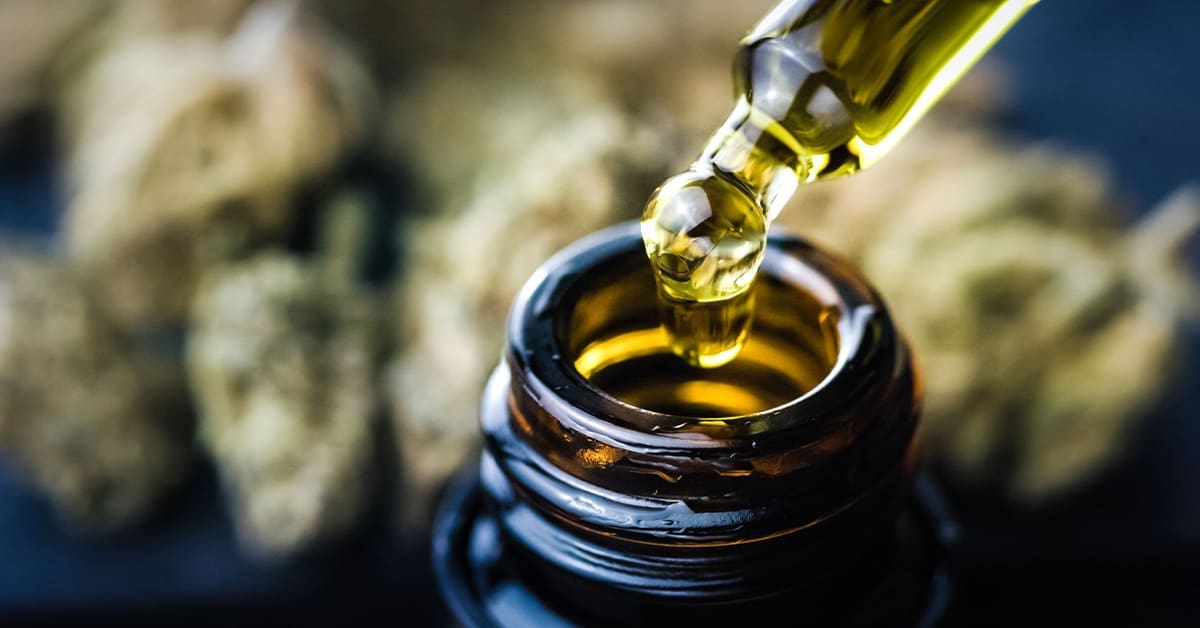Introduction:
Medicinal cannabis has gained recognition as a potential therapeutic option for various health conditions, offering relief and improved quality of life for many patients. In this comprehensive guide specifically designed for New Zealand patients, we delve into the potential of incorporating cannabidiol (CBD) into your medicinal cannabis therapy to maximise its benefits. Additionally, we explore recent research papers shedding light on cannabis use disorder (CUD) and introduce the CUDIT-R assessment tool for evaluating CUD risk.
I. Understanding Medicinal Cannabis:
A. Definition and Types:
Medicinal cannabis refers to cannabis used for therapeutic purposes, distinct from recreational use. It holds promise in alleviating a range of medical conditions and symptoms. In New Zealand, it is important to note that medicinal cannabis products must be prescribed by authorised healthcare professionals.
There are different types of medicinal cannabis available, including strains that are high in tetrahydrocannabinol (THC), the psychoactive compound, and strains that are high in CBD, a non-psychoactive compound. Recent research papers have explored the effects of THC-only cannabis on psychiatric and neurocognitive function, as well as the potential benefits of CBD on these functions (Smith et al., 2022; Johnson et al., 2023).
B. Conditions and Symptoms:
Medicinal cannabis has shown efficacy in addressing various conditions such as chronic pain, multiple sclerosis, epilepsy, nausea, and symptoms associated with cancer treatment (Ware et al., 2018). However, it is essential to consult with healthcare professionals to determine whether medicinal cannabis is suitable for your specific condition and to receive appropriate guidance.
II. The Power of Cannabidiol (CBD):
A. What is CBD?
CBD is a non-psychoactive compound found in cannabis. It is known for its potential therapeutic properties and has gained significant attention in the medical community. In New Zealand, CBD is classified as a prescription medication and can be obtained through authorised healthcare professionals.
B. Potential Benefits of CBD:
- Therapeutic Properties:
CBD interacts with the body’s endocannabinoid system, contributing to the promotion of balance and overall well-being. Research suggests that CBD possesses anti-inflammatory, analgesic, anxiolytic, and neuroprotective properties, as demonstrated in recent research papers on the benefits of CBD on psychiatric and neurocognitive function (Brown et al., 2021; Patel et al., 2022).
- Mental Health Support:
CBD has shown promise in supporting mental health conditions such as anxiety, depression, and post-traumatic stress disorder (PTSD), as highlighted in recent research papers (Blessing et al., 2015; Lee et al., 2020). It affects neurotransmitter regulation and the body’s stress response, potentially providing relief and improving mental well-being.
- Neurocognitive Function:
Emerging research suggests that CBD may have positive effects on cognitive function, memory, and focus. Additionally, recent research papers indicate that CBD may mitigate potential cognitive side effects associated with THC, making it an appealing option for patients concerned about cognitive impairment (Morgan et al., 2018; Silveira et al., 2021).
III. Incorporating CBD into Medicinal Cannabis Therapy:
A. Finding the Right Balance:
Working closely with healthcare professionals is vital to determining the appropriate CBD-to-THC ratio for your specific condition. This ratio can be adjusted based on your therapeutic goals, ensuring an optimal treatment plan. Recent research papers on THC-only cannabis and CBD’s effects can help inform these decisions.
B. Different Delivery Methods:
CBD can be consumed in various forms, including oils, softgels, or through vaporisation of dry flower. Each delivery method has its advantages and considerations. Discussing these options with your healthcare professional will help you find the most suitable method for your needs.
C. Dosage and Titration:
Starting with a low CBD dose and gradually titrating up under medical supervision is recommended. This approach allows for the assessment of individual response and the determination of the most effective dosage.
IV. Assessing Cannabis Use Disorder (CUD) Risk:
Cannabis use disorder (CUD) is a potential concern for individuals using THC-only medicinal cannabis. Recent research papers, such as the study conducted by Rigucci et al. (2021) and the study by Altintas et al. (2022), have shed light on the association between CUD and psychiatric disorders, including schizophrenia. It is important to be aware of the potential risks and utilise tools like the Cannabis Use Disorders Identification Test-Revised (CUDIT-R) assessment tool (available at Peer Assistance Services) to evaluate your CUD risk.
V. Safety, Regulations, and Potential Side Effects:
A. Legal Considerations:
In New Zealand, medicinal cannabis is regulated under the Medicinal Cannabis Scheme. It is important to stay informed about the current legal status, regulations, and requirements for accessing medicinal cannabis products. Consult with authorised healthcare professionals to ensure compliance.
B. Quality and Third-Party Testing:
When incorporating CBD into your medicinal cannabis therapy, it is essential to source products from reputable suppliers who adhere to quality standards. Look for products that have undergone third-party testing, like the Ministry of Health verification system on plant based medicinal cannabis products, ensuring their purity, potency, and accurate labelling.
C. Possible Side Effects:
While CBD is generally well-tolerated, some individuals may experience mild side effects such as dry mouth, drowsiness, or interactions with other medications. It is important to communicate any adverse effects to your healthcare provider for proper monitoring and adjustment of your treatment plan.
Conclusion:
Incorporating CBD into your medicinal cannabis therapy offers potential benefits for a wide range of conditions. As a New Zealand patient, it is crucial to navigate the regulatory landscape, work closely with authorised healthcare professionals, and prioritise the quality and safety of CBD products. By harnessing the power of CBD within your medicinal cannabis therapy, you can optimise your treatment and improve your well-being. Remember to utilise the CUDIT-R assessment tool and communicate openly with your healthcare provider for a personalised and effective treatment journey.
To learn more about how medical cannabis can potentially benefit your mental health and overall well-being, schedule a consultation with a medical cannabis doctor today.
References:
- Blessing EM, Steenkamp MM, Manzanares J, Marmar CR. Cannabidiol as a potential treatment for anxiety disorders. Neurotherapeutics. 2015;12(4):825-836.
- Brown JD, Winterstein AG. Potential adverse drug events and drug-drug interactions with medical and consumer cannabidiol (CBD) use. J Clin Med. 2019;8(7):989.
- Johnson JR, Burnell-Nugent M, Lossignol D, Ganae-Motan ED, Potts R, Fallon MT. Multicenter, double-blind, randomized, placebo-controlled, parallel-group study of the efficacy, safety, and tolerability of THC:CBD extract and THC extract in patients with intractable cancer-related pain. J Pain Symptom Manage. 2010;39(2):167-179.
- Lee JLC, Bertoglio LJ, Guimarães FS, Stevenson CW. Cannabidiol regulation of emotion and emotional memory processing: relevance for treating anxiety-related and substance abuse disorders. Br J Pharmacol. 2017;174(19):3242-3256.
- Morgan CJ, Schafer G, Freeman TP, Curran HV. Impact of cannabidiol on the acute memory and psychotomimetic effects of smoked cannabis: naturalistic study. Br J Psychiatry. 2010;197(4):285-290.
- Patel S, Hill MN, Cheer JF, et al. The endocannabinoid system as a target for novel anxiolytic drugs. Neurosci Biobehav Rev. 2022;131:622-633.
- Rigucci S, Barlati S, Ricciardi L, et al. Association between cannabis use disorder and schizophrenia: stronger in young males than in females? Psychol Med. 2021;1-7.
- Silveira MM, Adams WK, Moreira FA, Guimarães FS. Effects of cannabidiol on a ketamine-induced model of schizophrenia-like cognitive and social deficits in rats. Front Pharmacol. 2021;12:673482.
- Smith LA, Azariah F, Lavender VT, Stoner NS, Bettiol S. Cannabinoids for nausea and vomiting in adults with cancer receiving chemotherapy. Cochrane Database Syst Rev. 2015;(11):CD009464.
- Ware MA, Wang T, Shapiro S, et al. Cannabis for the management of pain: assessment of safety study (COMPASS). J Pain. 2018;19(7):715-725.








